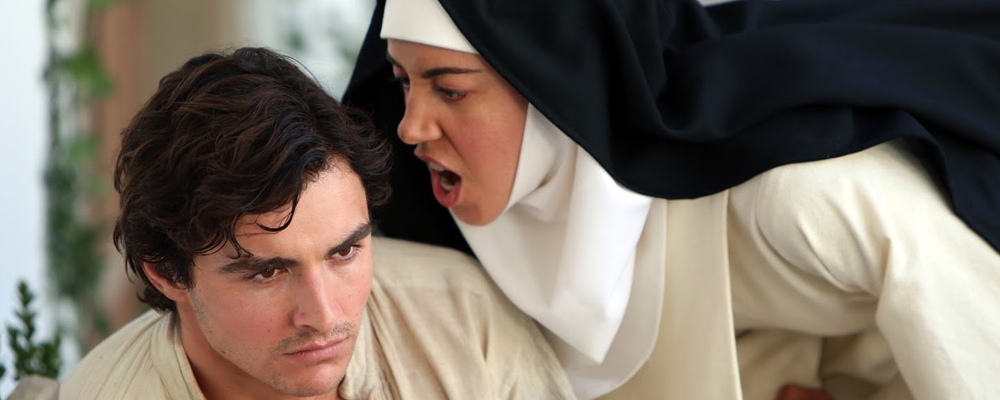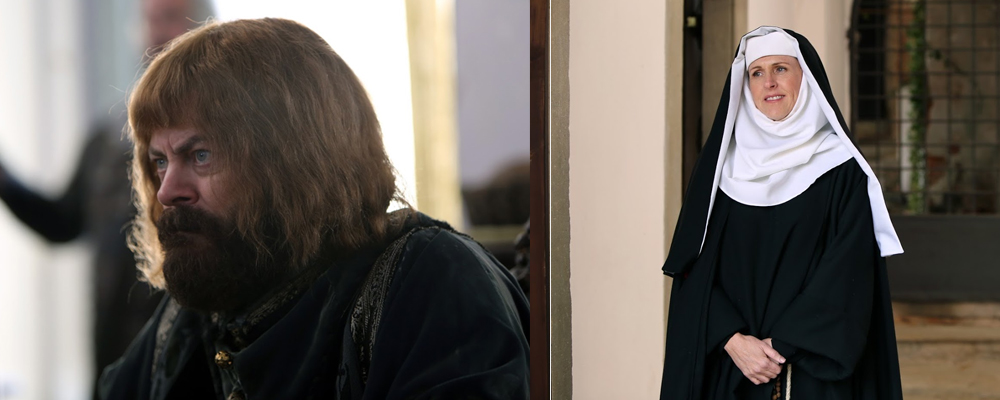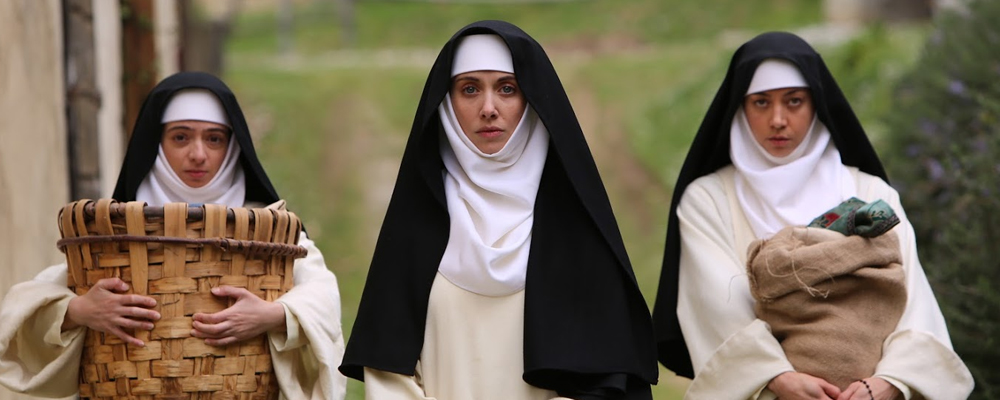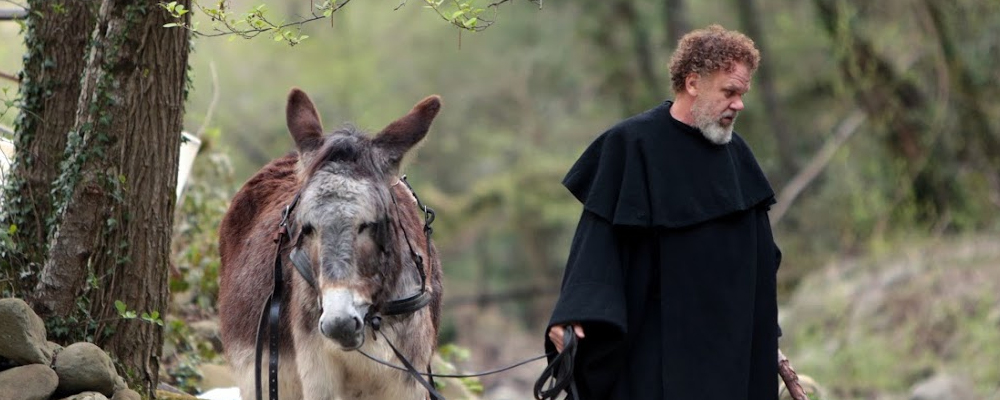Medieval History and Improv Are a Winning Combo in ‘The Little Hours’
Sandra Miska
Very little is known about the medieval clergy who lived their lives in religious solitude. Although surviving documentation provides some information about their daily routines, few clues remain about their personal lives, especially those of the women who took the veil. After mixed results tackling grief in the bachelor party comedy “Joshy,” writer/director Jeff Baena blends history and humor in nun comedy “The Little Hours.” Set in 1347 Italy, this farce follows three brides of Christ — acerbic Fernanda (Aubrey Plaza), good-natured Alessandra (Alison Brie) and awkward Genevra (Kate Micucci). All around 30-ish, the women are presented as living somewhat like college girls who are a little too old to still be living in the dorms. The nuns’ somewhat humdrum lives are disrupted by the arrival of two colorful characters: Genevra’s supposed childhood friend, Marta (Jemima Kirke) and the handsome mute gardener, Massetto (Dave Franco).
In previous centuries, women didn’t necessarily seek a life sealed up in a convent because of their excessive piety. Rather, many of them ended up there because they didn’t have any other place in the world. Alessandra is an excellent example of this, as her father (Paul Reiser) is unable to pull together the funds for her dowry, leaving her to a life of embroidery and prayer. The women in this particular convent live under Mother Marea (Molly Shannon) and Father Tommasso (John C. Reilly), whose abilities to lead by example are questionable. It is after Massetto helps Tommasso out of a bind that the priest agrees to take in the young man, who is on the run from his last master, crazy, torture-happy Lord Bruno (Nick Offerman), after sleeping with the man’s bored wife, Francesca (Laura Weedman). The holy man takes the adulterer on as a gardener on the condition that he never speaks, as Fernanda led an attack against the gentile former gardener (director Paul Weitz in a funny cameo) for daring to greet her a good morning. The arrival of this handsome newcomer allows Alessandra and Genevra to explore their long-repressed sexualities, leading to some hilarious and awkward situations. Fernanda, meanwhile, has other plans for Massetto, as she and Marta get into some mischief of their own, some of it involving a goat. All of this mayhem leads to a visit from the exasperated Bishop Bartolomeo (Fred Armisen).
Baena has studied medieval history in depth – he earned a minor in the subject as an undergrad at NYU – and much of “The Little Hours,” which was loosely based on “The Decameron,” a collection of novellas by 14th century Italian writer Giovanni Boccaccio, reflects this. However, he uses modern dialogue and tropes to make the characters relatable to young, modern viewers, with delightful results. In one scene where the nuns get drunk, they chant a hymn with the same joyfulness in which one would sing her favorite Katy Perry song today. Instead of writing stuffy, showy dialogue, Baena allows his cast, which includes some of the best comedic actors working today, to shine through improv. Every comedy fan already knows how great Armisen, Offerman and Plaza are, but not everyone is aware of what secret weapons Micucci and Weedman are.
“The Little Hours” opens in Los Angeles and New York June 30 with a national release to follow.




